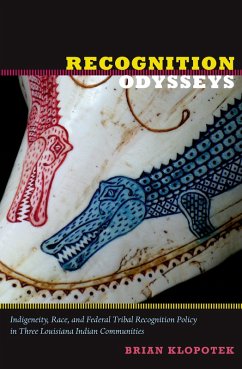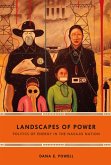In Recognition Odysseys, Brian Klopotek explores the complicated relationship between federal tribal recognition policy and American Indian racial and tribal identities. He does so by comparing the experiences of three central Louisiana tribes that have petitioned for federal acknowledgment: the Tunica-Biloxi Tribe (recognized in 1981), the Jena Band of Choctaws (recognized in 1995), and the Clifton-Choctaws (currently seeking recognition). Though recognition has acquired a transformational aura, seemingly able to lift tribes from poverty and cultural decay to wealth and revitalization, these three cases reveal a more complex reality.Klopotek describes the varied effects of the recognition process on the social and political structures, community cohesion, cultural revitalization projects, identity, and economic health of each tribe. He emphasizes that recognition policy is not the only racial project affecting Louisiana tribes. For the Tunica-Biloxis, the Jena Band of Choctaws, and the Clifton-Choctaws, discourses around blackness and whiteness have shaped the boundaries of Indian identity in ways that have only begun to be explored. Klopotek urges scholars and officials from the Bureau of Indian Affairs (BIA) to acknowledge the multiple discourses and viewpoints influencing tribal identities. At the same time, he puts tribal recognition in broader perspective. Indigenous struggles began long before the BIA existed, and they will continue long after it renders any particular recognition decision.
Dieser Download kann aus rechtlichen Gründen nur mit Rechnungsadresse in A, B, BG, CY, CZ, D, DK, EW, E, FIN, F, GR, HR, H, IRL, I, LT, L, LR, M, NL, PL, P, R, S, SLO, SK ausgeliefert werden.









